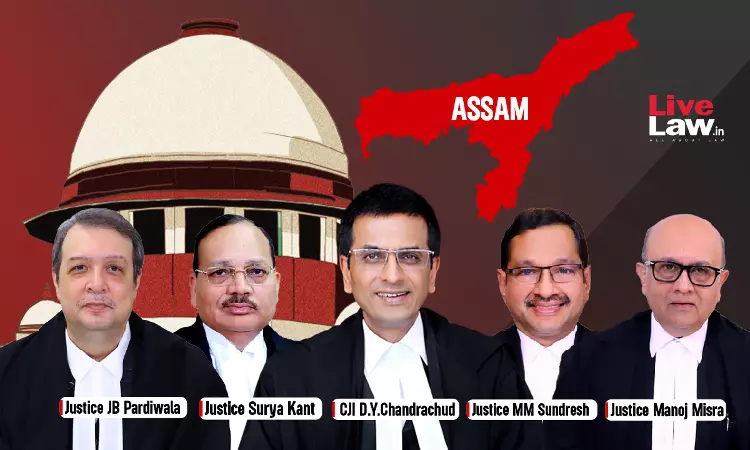Supreme Court Upholds Validity Of S.6A Of Citizenship Act Recognizing Assam Accord By 4:1 Majority
Anmol Kaur Bawa
17 Oct 2024 10:51 AM IST

Next Story
17 Oct 2024 10:51 AM IST
The Supreme Court today (October 17) upheld the constitutional validity of Section 6A of the Citizenship Act 1955, which recognized the Assam Accord, by 4:1 majority.The 5-Judge Constitution Bench comprising Chief Justice of India DY Chandrachud, Justices Surya Kant, MM Sundresh, JB Pardiwala, and Manoj Misra delivered the judgment.Justice Pardiwala gave a dissenting judgment to hold Section...
